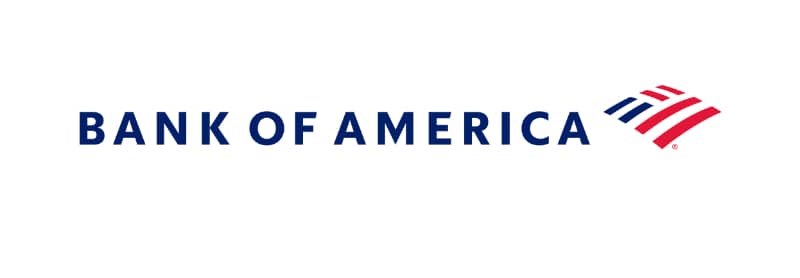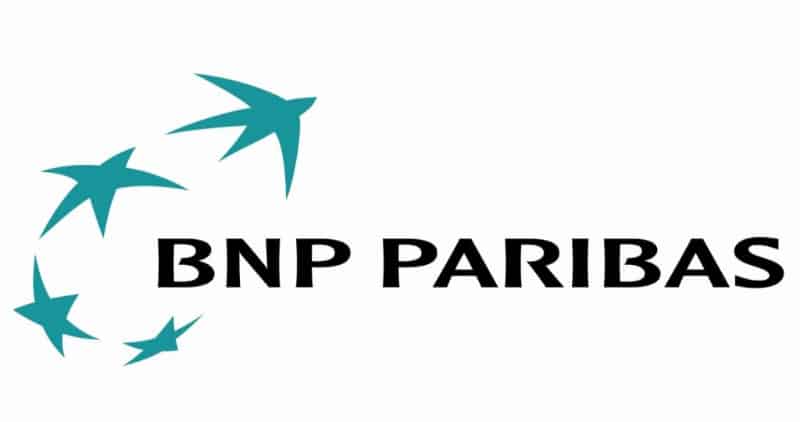Finance
The 10 Best Job Search Websites

What are the best job search websites to use?
Whether you’re fresh out of college looking for your first job or a seasoned veteran after an executive role, a job search website is essential to help you find your next [position.
This guide will take you through the best websites you can use for job hunting and how you can take advantage of their features to build a healthy and lucrative career.
The Best Job Search Websites
We’ve covered the tools and features that help you build your profile, upload a resume, and connect with potential employers to bring you this comprehensive job search website guide.
Here’s our list of the 10 best job search websites:
10. GetWork
Best For: Up-To-Date Job Listings
Formerly known as LinkUp, GetWork is an online job board that uses its own proprietary technology to compile job listings from over ten thousand other job search sites.
The service aims to upload all new job listings found within an hour, making it one of the most up-to-date job search sites you can find.
Everything is displayed through a neat and simple interface, making it a great job search engine for people who want to cut straight to the application process.
GetWork is on the limited side when compared to other job search sites, without the extensive articles and quizzes that give a more in-depth user experience.
But this relative lack of comprehensive features isn’t necessarily a downside, particularly if you’re job hunting on a tight schedule and want to avoid distractions that decrease productivity.
There are vacancies listed across a broad spectrum of industries, too, covering everything from finance and law to marketing, healthcare, and tech jobs.
It’s also free to use, and if you sign up for an account you can save job postings for later and receive new job alerts via email as and when they are posted.
Pros:
- Free to use
- Companies and vacancies are verified
- Speedy job posting updates
Cons:
- Can’t apply for roles through GetWork
- Limited features
Bottom Line
While GetWork is on the limited side when it comes to bells and whistles, its rapid update of job vacancies and streamlined interface makes it a good job search website for job seekers who want to cut to the chase.
9. Snagajob
Best For: Urgent Job Openings
With a strong jobs market causing more students to drop out of college and seek employment, positions for hourly workers are becoming increasingly sought after.
Snagajob is designed specifically for these types of jobs, with an emphasis on roles for hourly workers and part-time jobs, rather than career veterans.
With job opportunities from over 700,000 employers in the US and Canada, Snagajob has over 100 million users registered on their service.
Established in 2010, Snagajob covers a wide range of industries that offer hourly employment, from daycare and hospitality to manufacturing and food processing facilities.
The site’s job search engine is easy to use, displaying the major logos of listed companies, as well as their location, job description, and hourly pay rates.
It also comes with a handy commute calculator to help potential applicants figure out how much it will cost them to travel from home to their new place of work.
Additional filters enhance the overall experience, including one that shows positions that require applicants urgently, making Snagajob perfect for those looking to get hired as soon as possible.
If you’re a job seeker with a limited resume who needs to get working in the short term, Snagajob’s comprehensive listings and hourly rate job boards are among the best job search sites you can use.
Pros:
- Plenty of vacancies listed
- Excellent filtering system
- Covers a broad range of industries
Cons:
- Only hourly jobs are listed
- Lacks some useful features
Bottom Line
Snagajob might be unsuitable for career-minded people looking for a high-paying role, but those who want an hourly rate job at short notice will find plenty of vacancies of interest in their service.
8. AngelList
Best For: Startup Jobs
Founded in 2010, AngelList set out with the specific aim of facilitating new jobs for the thousands of startups looking to hire the best talent.
With a focus on tech sector startups, AngelList hosts jobs for over 100,000 startups and includes some well-known companies such as Slack and Spotify on their database.
Online publishing, health and beauty apps, and other cutting-edge emerging job sectors are all present, which can be easily searched for or browsed using handy filters to narrow down the results.
When applying for a position through AngelList, the system will tell you the name and title of the person you’re applying to, so you can better tailor your cover letter.
It’s a completely free system, and all you need to do to get started is upload your resume to send out applications.
AngelList is also committed to transparency, providing information on salary and equity options, the amount of investment a company has raised, and other details to help applicants make a fully informed decision.
There are also assessment-based tools and a quiz to help match you up with the best possible positions, along with modules to help with interviews and other educational resources.
Pros:
- Plenty of high-quality startup jobs
- Ideal for those looking for tech jobs
- Great transparency
Cons:
- The database could be bigger
- Limited industries listed
Bottom Line
If you’re tired of contemplating the harsh reasons why you’re still broke, AngelList’s top-tier quizzes and profiling will help you find the best job at some of the leading tech startups to suit your talent stack.
7. Scouted
Best For: Recent College Graduates
Another excellent and free-to-use job search site is Scouted, which was originally set up in 2015 and bought out by recruiter.com in 2021.
It covers all the basic features you can expect from a job search engine, with the ability to upload a copy of your resume and include links to your social media and LinkedIn pages.
Where Scouted excels is with its approach to the integration of personal attributes alongside traditional skills-based metrics.
With Scouted, applicants can answer a series of questions and evaluations to help match them with job positions that are best suited to their temperament and ambitions.
This unique approach makes Scouted a fantastic job search website for those who are just entering the job market, for instance, recent college graduates looking for their first role.
There are also plenty of handy search and filtering options to make browsing job vacancies quick and simple, with the service’s AI further improving the results given.
The simplicity of the Scouted system makes it an ideal job search site to pop onto when taking a break from your lunchtime life hacks, checking out the latest listings with minimal fuss.
They’ve even included a set of virtual interview questions to help practice with, and answering these can increase the chances of landing a new job by 58%.
While Scouted might not have quite the same extensive listings as some of its rivals, its innovative approach to profile creation makes it a great option for those new to the jobs market.
Pros:
- Comprehensive profile options
- High-quality selection of jobs posted
- Great user interface
Cons:
- The database isn’t the largest
- Adding and updating your profile can be time-consuming
Bottom Line
With its innovative approach that combines your resume with your skillset, Scouted is one of the best job search websites for people fresh out of college looking for their first job to kickstart a successful career.
6. ZipRecruiter
Best For: Profiling Options
ZipRecruiter is another fantastic website for job seekers who want an uncomplicated system to help them with their job searching endeavors.
The job search engine is incredibly straightforward: simply enter your keyword, location, and distance, and the system will pull up the best results for your criteria.
It displays the basic information you need in these results, including the employer, and the first line of the job description while clicking on the link shows the full details.
There’s also a Quick Apply feature, which allows registered users to fire off their resumes to employers who are signed up to the feature at the click of a button.
Perhaps the best aspect of ZipRecruiter is the extensive profile options, which go beyond the basic profile options of work and education history and biography, and resume.
You can also include a photograph, a list of your social networks, and a detailed list of your skills and professional certifications.
Additional tools such as search filters make hunting down the best jobs posted for your skillset even easier, and everything is intuitive to use.
Employers can find plenty here to appeal to their needs, too, with the “Invite to Apply” tool a particularly useful feature for tracking down local candidates relevant for the positions posted.
Pros:
- Free to use service
- An extensive list of job openings
- Impressive options for profiles
Cons:
- Filtering could be better
- A limited number of additional features
Bottom Line
ZipRecruiter might lack a comprehensive range of job opportunities, but its easy-to-use interface and detailed profile options make it a great job search site for job seekers after a fuss-free experience.
5. FlexJobs
Best For: Flexible and Remote Jobs
One of the most fundamental shifts in how businesses operate in the aftermath of the pandemic is the rise of hybrid and remote working, which looks set to stay even as normality returns.
FlexJobs recognizes the need for dedicated job search sites with an eye on flexible and remote workers, making it the ideal choice for those who prefer to continue to work from home.
The site includes jobs from every industry that allows workers to perform their roles from home and also covers full-time, part-time, and freelance jobs.
There are also decent filtering options available on FlexJobs, allowing you to narrow down your searches to include information on scheduling requirements, salary, seniority, and more.
In addition to comprehensive search and filter options, there are also a series of articles and events to help you find the right job, along with handy video guides.
Profile options are extensive, and the site’s approach to confirming valid listings makes sure that everything that comes up in search results is viable and current.
To get the most out of the FlexJob system, you’ll need to sign up for a membership, with fees at the time of writing coming in at $6.95 for a week or $49.95 for a full year.
This fee will give you access to the site’s full range of services, including more detailed information on job listings, coaching discounts, and resume reviews.
The membership fee also covers discounts on premium tools and services often widely used by freelancers and remote workers, for example, access to Audible and Grammarly.
If you’re looking for a traditional office-based job, then FlexJob won’t offer the results you need, but for work from home enthusiasts, it’s one of the best job search sites you can find.
Pros:
- Ideal for remote jobs
- Exceptional filtering options
- Loaded with great features
Cons:
- Limited access to features with a free account
- The search system could be better
Bottom Line
FlexJobs is one of the best job search sites for remote and flexible workers looking to change careers, and while a subscription is required to get the most out of it, the impressive selection of vacancies makes it a worthwhile investment.
4. Glassdoor
Best For: Company Data And Reviews
Created in 2008, Glassdoor has since become one of the most-used job search engines available, reaching millions of prospective employers and employees around the world.
With 110 million company reviews, it’s also one of the best job search sites for information on employers to help job seekers make the best decisions.
Users can search for open positions and find comprehensive information on their company culture, salary, benefits, and other useful details.
Setting up a profile on Glassdoor is easy, with uploading a resume and signing up for email alerts completed in a matter of minutes.
When viewing job listings, you can check out an overview of the company as well as reviews and anonymous ratings from current employees.
This information can be a potential game-changer, allowing applicants to better prepare for interviews and improve communication skills to tailor their approach to their application.
What’s truly impressive about Glassdoor is the amount of data available, with the site allowing you to dig into everything from the work-life balance you can expect when working there, to the company’s industry, size, age, and career progression.
This excellent transparency has helped shape Glassdoor as the best job search site for those who prefer to conduct as much research as possible into a company before sending a resume.
Pros:
- Excellent selection of job listings
- A feature-rich platform
- Includes detailed information on salaries and businesses
Cons:
- Can be a little fiddly to use
- The amount of data available can be overwhelming
Bottom Line
With millions of job listings available on the site along with excellent filtering and search options and incredibly detailed company information, Glassdoor is one of the leading job search sites currently available.
3. Monster
Best For: A Broad Selection Of Job Opportunities
Monster is one of the biggest job search websites available, boasting millions of job listings spanning every conceivable industry and sector.
Positions listed cover all commitment levels, too, so if you’re looking for part-time work or only want to work remotely, Monster will display results that cater to your requirements.
Whether you’re looking for an entry-level position as a college graduate, or an executive role at a leading multinational corporation, Monster will have something for you.
It’s also one of the easiest to use job search websites, with a quick and intuitive signup process where you can add your resume and other relevant details in a matter of minutes.
In addition to your resume, Monster lets users add their work and education history to their user profile, and updating this can be performed with little fuss.
While the filtering options aren’t as detailed as some of its closest rivals, if you know what you’re looking for it’ll give you accurate results to choose from.
It’s all completely free to use, but if you’re prepared to pay a little extra, Monster also includes useful resume and cover letter writing services to help you hone your presentation.
While Monster is lacking some useful features such as the ability to search for salary and location, the extensive range of vacancies it brings up makes it an online job board well worth bookmarking.
Pros:
- An impressive list of job openings
- Free to use
- The interface is simple and intuitive
Cons:
- Lacks some extra features
- Payment required for resume and cover letter writing services
Bottom Line
With its overall neat and easy-to-use interface and a huge selection of job postings listed on its service, the Monster job search site is a solid all-rounder covering everything from part-time work to government jobs.
2. LinkedIn
Best For: Networking
LinkedIn is perhaps the best-known job search website currently available, accumulating over 800 million registered users since its creation in 2003.
What sets LinkedIn apart from its competitors is its excellent social networking features, in addition to performing as a host to a range of job boards.
Users can easily create a profile, which acts as a public digital resume and can be seen by all other users, helping to deliver a good first impression for recruiters and potential employers.
As with a resume, the profile options allow you to add your work history and educational background, along with other information to help sell your skills.
The ability to build up a list of connections, much like how you add friends on Facebook, makes LinkedIn more appealing than other job search engines, increasing your credibility and enhancing your overall network.
You can apply to open positions posted on LinkedIn and set up job alerts to inform you of any new vacancies suitable for your skills and experience.
Sign up for a premium membership with LinkedIn and you’ll gain access to insights into other applicants for positions you’ve expressed interest in, as well as the chance to send messages to people outside your network.
Pros:
- Huge selection of job listings
- Feature-rich service
- Exceptional networking capabilities
Cons:
- Some features are behind a paywall
- The Facebook-style interface is a little dated
Bottom Line
One of the best-known job search websites, LinkedIn offers more than just job postings, with an invaluable social networking platform and other great features you won’t find on other platforms.
1. Indeed
Best For: Overall Job Hunting
Indeed is perhaps the most comprehensive job website available for job seekers, with millions of listings available on their job boards drawn from thousands of websites.
Whether you’re looking for how to get paid for helping other people, or landing your dream job in the entertainment industry, Indeed has positions that will suit your requirements.
It’s free to use, so you can access its excellent database in a matter of minutes after uploading your resume and basic information.
Additional tools allow you to search and compare salaries based on job title, set up job alerts, and find out more about prospective employers using the company career pages.
This feature includes plenty of comments and reviews from real employees, allowing you to gain further insights into companies you may be considering applying to.
You can also tailor your profile to include information about when you’re ready to start work, and if you need to post a job vacancy of your own, this can also be done for free.
While Indeed doesn’t include some of the features you can find on other job search engines, for the sheer volume of jobs available across a broad range of sectors, it’s hard to beat.
Pros:
- Free to use
- An impressive database of job listings
- Neat and intuitive design
Cons:
- Could be improved with more features
- Skills assessment system can be fooled
Bottom Line
Indeed’s range of job postings covering every industry and sector you can think of, combined with its simple interface and absence of fees, makes it the best all-around job search site available.
Summary
We hope you’ve found this overview of the best job search sites a useful resource to help you start or develop your career.
As the information and services change, we’ll be updating this article to reflect the most up-to-date information, so be sure to check back in the future.
Here’s a quick recap of the 10 best job search websites:
- Indeed – Best For: Overall Job Hunting
- LinkedIn – Best For: Networking
- Monster – Best For: A Broad Selection Of Job Opportunities
- Glassdoor – Best For: Company Data And Reviews
- FlexJobs – Best For: Flexible and Remote Jobs
- ZipRecruiter – Best For: Ease Of Use
- Scouted – Best For: Career Change
- AngelList – Best For: Startup Jobs
- Snagajob – Best For: Urgent Job Openings
- GetWork – Best For: Up-To-Date Job Listings
What’s the best job search website, in your opinion? Leave a comment below.
Finance
The 10 Biggest Banks in the World

The success and wealth of the majority of the banks in the world can be attributed to how well their economy is doing as well as other factors.
It’s no surprise to see the “Big Four” occupying the top spots as usual, as their economies continue to grow year on year, due to expanding trade markets and export being on the up!
If you don’t really know anything about banking and are curious to find out what the worlds biggest banks are, then here’s a list of the 10 biggest banks in the world, determined and ranked in order of their total assets.
The 10 Biggest Banks in the World
The list of banks and figures mentioned below have been compiled from various sources around the web, such as Wikipedia, Investopedia & Dough Roller.
10. Crédit Agricole Group

Total Assets: $2.13 Trillion
The tenth biggest bank in the world is Crédit Agricole Group, a French-owned bank and one of the largest companies in France.
It’s the worlds largest co-operative financial institution, and in 1990, became an international full-service banking group.
This consisted of thirty-nine Crédit Agricole regional banks and a vast network of local banks.
Its headquartered in Montrouge, France and serves a variety of customers around the world.
The bank controls a significantly large part of the French banking system and is known for its working historical ties within the farming industry.
According to recent data, Crédit Agricole has an approximate current total asset balance of $2.13 trillion dollars.
9. Bank of America (BAC)

Total Assets: $2.35 Trillion
Bank of America is the second-biggest banking institution in America, with assets totalling $2.35 trillion dollars.
It serves approximately 10.73% of all American bank deposits and primarily deals with commercial banking, wealth management and investment banking.
Founded in 1784, and headquartered in Charlotte City, North Carolina, Bank of America now serves clients all over the world and from its 5,000 financial retail centres.
Bank of America is also one of the largest companies in the United States, employing over 208,000 people. In 2008, it acquired Merrill Lynch, making it the worlds largest wealth manager.
Bank of America has an approximate current total asset balance, according to recent data, of $2.35 Trillion.
8. BNP Parabis

Total Assets: $2.33 Trillion
Next on the list is BNP Parabis, which is a French international banking group.
It’s currently the worlds eighth-largest bank by its total number of assets and can be found operating in seventy-seven countries.
The bank was formed through a merger in 2000, between Banque Nationale de Paris (BNP) and Paribas.
Its origins date back as far as 1848 when it is believed the bank was first founded.
Headquartered in Paris, France, BNP Parabis employs over 190,000 people and receives the majority of its annual revenue from everyday client accounts.
7. HSBC Holdings PLC

Total Assets: $2.55 Trillion
HSCB Holdings PLC is a British multinational investment bank and financial holdings company.
By 2018, it was considered to be the seventh-largest bank in the world and the largest in Europe.
The bank has more than one thousand locations and eighty offices in the UK, and four-hundred and sixty throughout the United States.
With over four million customers worldwide, HSBC offers private banking, corporate finance and retail and commercial banking to its customers.
Its headquartered in London, England and currently employs over 235,000 people.
HSBC can be found in roughly sixty-five countries around the globe and is listed on both the London Stock Exchange and the Hong Kong Stock Exchange.
6. JPMorgan Chase & Co

Total Assets: $2.62 Trillion
Financial services holding company and multinational investment bank, JPMorgan Chase & Co is the biggest bank in America and the sixth-largest in the world.
Providing products to its clients in over 100 countries, they are involved with asset management, investment services, wealth management and securities.
JPMorgan Chase & Co was the result of several large banks merging together in 2000 and is now one of the most expensive companies in the world.
Headquartered in Manhattan, New York City, JPMorgan Chase & Co is now also one of the largest investment companies in the world.
For retail and credit card purposes, the bank operates under the name “Chase”.
5. Mitsubishi UFJ Financial Group

Total Assets: $2.81 Trillion
Coming in at number five on our list of the biggest banks in the world is the Mitsubishi UFJ Financial Group.
Being the fifth-biggest bank in the world, it has total assets of $2.81 trillion dollars and is Japans largest bank holding financial group.
It is one of the main companies of the Mitsubishi Corporation and offers its customer a variety of services including, commercial banking, asset management, trust banking and international finance.
The bank was created in 2005 after a merger between two of Japans Largest banks, the Mitsubishi Tokyo Financial Group and UFJ holdings.
It’s currently headquartered in Osaka city and employs over 106,000 people.
4. Bank of China

Total Assets: $3 Trillion
The next Asian bank on our list and the first of the “Big Four”, is the Bank of China.
It is one of the four biggest state-owned commercial banks in China and was founded in 1912 by the republican government, and is now considered to be the oldest bank in mainland China.
It’s headquartered in Bejing, China and employs approximately 310,000 people, with offices in over twenty countries.
The bank offers investment banking, insurance and investing services, personal loans, credit cards, mortgages and asset and liability management.
Approximately 70% of the company is owned by the Chinese Government, with assets totalling just over $3 trillion.
3. Agricultural Bank of China

Total Assets: $3.2 Trillion
The next of the “Big Four” banks of China, AgBank, as it’s also known, is the third biggest bank in the world and one of the ten largest companies on the planet.
Founded in 1951, Agbank has branches in Seoul, Tokyo, Singapore, Sydney, New York, London and many more in the world biggest cities.
Headquartered in Beijing, it employs over 444,000 people and is owned entirely by the state.
It has 320 million retail customers and 2.7 million corporate clients around the world; which are taken care of from one of its 24,000 branches.
In 2010, AgBank went public, achieving the worlds biggest ever IPO at the time, which has since been beaten by Alibaba.
The bank’s approximate assets, according to the latest data, are in the region of $3.2 trillion.
2. China Construction Bank Corporation

Total Assets: $3.3 Trillion
The second-biggest bank in the world is China Construction Bank Corporation.
The third of the “Big Four” on our list, CCB, as it’s often abbreviated too; has approximately 13,629 domestic branches and has overseas branches in Frankfurt, Barcelona, Luxembourg, Hong Kong, New York, Seoul and several other major cities.
Headquartered in the Xicheng district, Beijing; CCB employs over 333,000 people and offers both corporate banking and personal banking.
Examples of what they offer on the personal side are credit cards, personal loans, deposits and wealth management.
Whereas the commercial side offers, credit, company e-banking, loans, commercial loans and credit lines.
According to the latest data, CCB’s total assets are approximately $3.3 trillion.
1. Industrial & Commercial Bank Of China

Total Assets: $4.2 Trillion
The world’s biggest bank is Industrial & Commerical Bank of China, which is also the largest bank in China and the biggest of China’s “Big Four”.
By the total number of assets, customers, employees, loans and deposits; ICBC, as it’s often referred to, completely dominates the rest of the biggest banks in the world.
The state-owned bank was founded in 1984 as a limited company and has grown to be the largest public company in the world by its sheer number of assets.
It’s headquartered in Beijing, China, and employs a whopping 460,000 people across branches in Asia, Europe, America and Oceania.
The 70% government-owned company ranked number one overall in “The Bankers Top 1000 World Banks ranking” and first on the Forbes Global 2000 of the world’s biggest public companies.
ICB’s total assets are thought to be in the region of $4.2 trillion dollars according to the latest data.
Summary
We hope you enjoyed our list of the 10 biggest banks in the world.
What do you think? Is bigger necessarily better than smaller ones?
It’s an interesting question, and the answer will differ for everyone, however, generally speaking, the larger the bank, the larger its capabilities and offerings.
It’s not true for all the banks on our list, but generally, most of them offer something for everyone and can assist you with all your personal and commercial financial interests.
If you enjoyed this article, check out:
Here’s a quick recap of the 10 biggest banks in the world:
- Industrial & Commerical Bank Of China
- China Construction Bank Corporation
- Agricultural Bank of China
- Bank of China
- Mitsubishi UFJ Financial Group
- JPMorgan Chase & Co
- HSBC Holdings PLC
- BNP Parabis
- Bank of America (BAC)
- Crédit Agricole Group
Which of these are you a member of? Leave a comment below.
Finance
The 10 Cheapest Countries to Live in Worldwide

Have you ever dreamt of living in a country where all your living expenses are under $1,000?
Well, if you have, then you’ll be pleased to know that the countries listed below offer exactly that!
This list has been created based on accommodation and living expenses per month, for a single person living on their own.
From countries in the Far East to tropical paradises in Central America, these are the 10 cheapest countries to live in worldwide.
Enjoy!
The 10 Cheapest Countries to Live in Worldwide
The list of countries and figures mentioned below have been compiled from various sources around the web, such as Forbes, Wikipedia & Nomad List.
These are the 10 cheapest countries to live in worldwide:
10. Cambodia

Cost: $812/Month
Kicking off our list of the cheapest countries to live in worldwide, is Cambodia.
Cambodia is centrally located in South East Asia and is also known as “Kampuchea, or the Kingdom of Cambodia.
It’s approximately 181,035 square kilometres in area and borders Thailand, Laos, Vietnam & The Gulf Of Thailand.
Cambodia’s capital city is Phnom Penh and its total population is around sixteen million people.
Overall, the cost of living in Cambodia is very cheap, costing under $1,000 a month.
Renting a small one-bedroom studio apartment in one of the cheapest cities in Cambodia, Sihanoukville, will cost you around $246 a month, or $32 a night in an Airbnb.
The currency in Cambodia is called “Riel” (KHR), and roughly 97.7% of the population practice Buddhism.
9. Thailand

Cost: $679/Month
Thailand is the ninth cheapest country to live in worldwide.
Officially called The Kingdom of Thailand, and previously called Siam, Thailand is a country located in the centre of South-East Asia and has 76 provinces.
At over 513,120km², Thailand is the fiftieth largest country in the world, with a total population of just over sixty-nine million people.
A one-bedroom studio apartment in one of the cheapest cities, Udon Thani, will cost you around $199 a month, or $40 a night in an Airbnb.
Thailands capital city is Bangkok, the currency is Thai Baht and 94.50% of the population are Buddhists.
8. Malaysia

Cost: $588/Month
Next on the list is Malaysia, costing as little as $588 a month for basic accommodation and living expenses.
Like the previous two countries, Malaysia is also located in South East Asia, and borders, Singapore, Thailand, Vietnam and Indonesia.
Malaysia consists of thirteen states and three federal territories, which are separated by the South China Sea into two regions.
The regions, the Peninsular of Malaysia and East Malaysia, are of similar size and the total area of Malaysia is 330,803km².
Malaysia’s has a total population of 31.6 million people and Kuala Lumpur is its capital city.
When booking accommodation, you’ll be looking at spending around $209 a month for a one-bedroom apartment in one of the cheapest cities, like Kota Kinabalu, or $35 a night for an Airbnb.
In Malaysia, you can enjoy a beer for around $1,57, a coffee for $0.60 and a basic meal out dinner out for $1.69.
7. Mexico

Cost: $587/Month
Mexico can be found in the southernmost portion of the United States.
As well as boarding the U.S., it also borders the Pacific Ocean, Guatemala, Belize, the Caribbean Sea and the Gulf of Mexico.
Mexico is the fifth-largest nation in the Americas, covering an approximate 2,000,000 km², and the thirteenth-largest state.
It has a current population of just over 129 million people and Mexico City is its capital.
83% of the population is Catholic and Mexico’s currency is Pesos (MXN).
A month in a one-bedroom studio apartment, in one of the cheapest cities in Mexico, Queretaro, will cost you around $256 a month, or $24 a night in an Airbnb.
When it comes to the essentials, like beer, coffee and eating out, you’re looking at spending around $1.54 for a beer, $1 for a coffee and $3.10 for a meal out.
6. Peru

Cost: $543/Month
The sixth cheapest country in the world to live in is Peru.
For an average living cost of around $543 a month, this Spanish speaking country is well worth checking out if you’re looking for a cheap place to live.
Peru is a country located in the western part of South America. It borders, Ecuador, Colombia, Brazil, Bolivia, Chile and the Pacific Ocean.
Its current population is 32.17 million people, spread over a total area of 1,285,216 km².
73.7% of its population is Roman Catholic and the Peruvian currency is Sol (Pen).
When booking your accommodation, you’ll be looking at spending around $198 a month for a one-bedroom apartment in the city centre, or $24 a night for an Airbnb. These prices are based on the city of Arequipa.
Whilst you’re there, you going to need to eat and drink. A normal size beer will cost you around $1.47, a coffee is approximately $0.98 and a meal out can be as little as $2.94.
5. Argentina

Cost: $542/Month
Coming in at number five on our list is Argentina.
A mere $542 a month can get a single person accommodation and living expenses for a whole month in one of the cheapest cities in Argentina, Salta.
Argentina is another Spanish speaking country, located in the southern half of South America.
It borders, Chile, Bolivia, Paraguay, Brazil, Uruguay, the South Atlantic Ocean and the Drake Passage.
Argentina is the eighth-largest country in the world and the second largest after Brazil, with a total population of just over 44 million people and covering a mainland area of 2,780, 400 km².
If you’re considering living in Argentina, as it’s one of the cheapest countries in the world; then you’ll be pleased to know that you can get a one-bedroom apartment for $100 a month, or roughly $27 a night depending on the time of year. This will be located in the city of Salta.
A meal out will cost you approximately $1.70, beer is around $0.80 and coffee is roughly $0.55.
4. Vietnam

Cost: $500/Month
Vietnam will cost you all of $500 to live in for an entire month, as it’s one of the cheapest countries in the world by far.
It’s the easternmost country on the South-East Asian Indochinese Peninsula and shares borders with China, Laos and Cambodia.
Vietnam has approximately 95.5 million people living across a total of 331,212 km².
Its capital city is Hanoi, but Ho Chi Minh city is its most populated city.
When choosing a place to stay in Vietnam, the cheapest city, Nah Trang, will cost you around $259 a month for a one-bedroom apartment in the city, or $24 a night in an Airbnb.
All your other essentials like food, beer and coffee will cost approximately, $0.58 for a coffee, $0.86 for a beer and $1.73 for a meal out.
There are lots of cheap things to do to keep you busy in Vietnam, and once you’ve been living there for a while, like most places on the list, you’ll probably be able to find even cheaper accommodation and activities.
3. Nepal

Cost: $450/Month
Breaking the $500 a month mark is Nepal, which is the third cheapest country to live in worldwide.
Nepal is located in South-East Asia, mainly in the Himalayas, but also includes parts in the Indo-Gangetic Plain.
It has a total current population of 29.3 million people living across a total landmass of 147,181km².
Bordering China and India, Nepal is the forty-eighth largest country by population and the ninety-third largest country by area in the world.
$164 will get you a one-bedroom studio apartment in one of Nepal’s cheapest cities, Pokhara; or you’ll spend approximately $23 a night in an Airbnb.
One beer will cost you around $1, coffee is approximately $0.73 and a meal out can cost around $2.08.
2. Bolivia

Cost: $431/Month
Bolivia is a landlocked country, located in the western part of South-America.
Its current population is approximately 11.05 million people living across a total area of 1,098,581km².
The capital city of Bolivia is Sucre, and Bolivia is made up of a multiethnic society, including, American Indians, Africans, Asians, Europeans and Mestizos.
Bolivia is the fifth largest country in South America and the 27th largest country in the world.
For those of you that speak Spanish, you’ll be pleased to know that Spanish is the official and predominant language of Bolivia; however, there are also thirty-six other indigenous languages spoken in the country.
A one-bedroom studio apartment in La Paz, one of the cheapest cities in Bolivia, will cost you around $145 a month, or $23 a night in an Airbnb.
Both beer and coffee are around about $1 each, and you certainly won’t break the bank when eating out, as a typical meal will cost you all of $2.
1. Indonesia

Cost: $340/Month
The cheapest place to live in, worldwide, is Indonesia.
Indonesia, or the Republic of Indonesia, is located between the Indian and Pacific oceans, in South-East Asia.
Home to approximately 17,000 islands, it’s the worlds largest island country and has a total population of 264 million people, which also makes it the worlds 4th most populated country.
There are certain places in Indonesia, like Bali and Jakarta that are more comparable on price to other major western cities around the world.
However, places like Senggigi in Lombok can provide you with accommodation and living expenses for as little as $340 a month.
You’re looking at paying approximately $142 a month for a one-bedroom studio apartment, or $12 a night for a hotel.
The luxury essentials like beer, coffee and coconuts cost as little as $0.89 for a beer, $0.10 for a coconut, $0.71 for coffee and $1.77 for a meal out.
Indonesia is the cheapest country to live in worldwide.
Summary
We hope you enjoyed our list of the 10 cheapest countries to live in worldwide. If you liked this list, then check out our list of the 10 most expensive countries to live in as well.
How about that, $340 a month for all your accommodation and living expenses, that’s amazing, right?
And, to top it off, you’ll also be living on a tropical paradise island!
So, you can sip coconuts and go to the beach whenever you want. How good is that?!
Here’s a quick recap of the 10 cheapest countries to live in worldwide:
- Indonesia – $340
- Bolivia – $431
- Nepal – $450
- Vietnam – $500
- Argentina – $542
- Peru – $543
- Mexico – $587
- Malaysia – $588
- Thailand – $679
- Cambodia – $812
Which of these cheapest countries could you live in? Leave a comment below.
Finance
The 10 Strongest Currencies in the World

We all like to get the most out of our money, even if it’s just a few extra cents on the dollar.
With that said, we’ve put together a list of some of the worlds strongest currencies, so you can think about getting a little extra buying power when travelling abroad.
If you think GBP or USD is the strongest currency in the world, then think again!
Here’s a list we put together of the 10 strongest currencies in the world:
The 10 Strongest Currencies In The World
The list of currencies and figures mentioned below have been compiled from various sources around the web, such as FXSSI, Currency Kart & Highest Currency.
These are the 10 strongest currencies in the world:
10. US Dollar

Kicking off our list of the strongest currencies in the world is the US dollar.
It’s the currency of the United States of America and is the most traded and used currency in the world.
It also holds the title of the worlds primary reserve currency and is held by both central and commercial banks all over the world.
Depending on your currency, it’s not the best time to convert some of your cash into dollars, however, it’s well worth keeping an eye on how it performs, as it doesn’t look like it’s going anywhere soon!
9. Swiss Franc – (1 CHF = 1.01 USD)

Next on the list, we have the Swiss Franc, which is the official currency of Switzerland and Liechtenstein!
At roughly 1.01 USD for each CHF, it’s currently not the best conversion rate to USD on the list, however, the Swiss Franc still comes in at number nine for good reason.
Switzerland is one of the wealthiest countries in the world and has a solid track record in banking and finance.
Having some of the worlds strictest monetary policies and lowest debt levels has drawn many an investor to view the Swiss Franc as a “Safe Bet”, choosing to store some of their wealth in the official currency of Switzerland.
Also known for being the sixth most traded currency in the world, the Swiss Franc is expected to retain its value in the foreseeable future!
8. Euro (1 Euro = 1.10 USD)

The EURO is the primary currency of the European Union and was adopted on January 1, 1999.
It holds the title as the second world reserve currency and is the official currency of 19 of the 28 member countries in the EU.
The currency first began virtually, in the form of traveller cheques and electronic bank transfers, and physical notes and coins appeared a few years later in 2002.
The introduction of the EURO was meant to increase the economic interdependency of trade between all EU member that choose to adopt it.
One EURO is approximately equivalent to 1.10 USD at the time of writing.
7. Cayman Islands Dollar – (1 KYD = 1.20 USD)

The next strongest currency in the world is the Cayman Islands Dollar.
The Cayman Islands are a British Territory located in the Caribbean and are well known for being one of the worlds best tax havens.
They provide banking licenses for a number of the worlds biggest banks, hedge funds and insurance companies.
The KYD was introduced in 1972 as a replacement for Jamaican Dollars and has gone on to become one of the worlds strongest currencies.
6. Gibraltar Pound – (1 GIP= 1.23 USD)

The Gibraltar pound is the official currency of Gibraltar.
As well as being used on its own, it’s also able to be exchanged with the British Pound at par value and, aesthetically, looks very similar.
All notes and coins of the Gibraltar Pound are printed by the Government of Gibraltar.
The most common Gibraltar exchange rate is the GIP to Euro rate.
5. Pound Stirling – (1 GBP = 1.26 USD)

Coming in at number five on our list of the strongest currencies in the world is the Pound Stirling, the official currency of the United Kingdom.
The Pound Stirling is often perceived as being the strongest currency in the world, however, that’s not the case, as it falls short to four Arabian currencies.
With the United Kingdom deciding to leave the EU, this has had a negative effect on the Pounds value.
It’s one of the most widely used currencies and the oldest independent currency in the world, being first used in the United Kingdom in 1489.
At the moment, 1 GBP can be exchanged for 1.26 USD.
4. Jordanian Dinar – (1 JOD = 1.41 USD)

The Jordanian Dinar, JOD, is the official currency of Jordan, an Arabic nation on the bank of the river Jordan.
Introduced in 1949, replacing the Palestinian pound, the Jordanian Dinar has been pegged by the United States Dollar for the past 2o years.
This has helped it to become one of the strongest currencies in the world.
However, despite its status, the Jordanian Dinar is still only used in Jordon and nowhere else in the world.
One JOD is currently valued at 1.41 USD.
3. Omani Rial – (1 OMR = 2.60 USD)

The Omani Rial is the third strongest currency on our list.
This Arabian currency was first introduced in 1973 and has seen a significant rise in value due to the success of the countries oil supply and being pegged to the U.S Dollar.
It’s the official currency of the Sultanate of Oman and is the third-highest status currency in the world.
The purchasing power of this currency is so high, that the government has to introduce 1/4 and 1/2 Rial banknotes.
As of 2019, 1 OMR is equivalent to 2.60 USD.
2. Bahraini Dinar – (1 BHD = 2.65 USD)

In second place, we have the Bahraini Dinar, which is the official currency of Bahrain and first introduced in 1965.
Bahrain is a PersianGulf Island State, populated by just over 1 million people.
Most of the expats in Bahrain are Indian, which makes the BHD to INR the most common.
The majority of the countries wealth comes from exporting its petroleum products.
Similar to the Jordanian Dinar, the Bahraini Dinar is only used in Bahrain and is pegged by the U.S. dollar.
1. Kuwaiti Dinar – (1 KWD = 3.29 USD)

The worlds strongest currency is the Kuwaiti Dinar.
It is the highest valued currency against the United States Dollar.
Located on the tip of the Persian Gulf, between Iraq and Saudi Arabia, Kuwait’s wealth can be attributed to its heavy exports of oil to a global market.
It was first introduced in 1961 after gaining its independence from the United Kingdom and has since gone on to become the most valuable currency in the world.
Over the years, the Kuwaiti Dinar has been pegged to a number of different currencies. Most recently, it was pegged to the U.S. dollar from 2003 to 2007.
More recently, it has been pegged to an unnamed basket, valued at 1 KWD to 3.29 USD.
Summary
We hope you enjoyed our list of the 10 strongest currencies in the world.
Using this to knowledge to start a business or cater to these countries with a service-based business could be very advantageous for you.
Try looking for opportunities in the countries with the strongest currencies and see what business opportunities there might be.
After all, your money will go a lot further in the countries with the strongest currencies.
Here’s a quick recap of the 10 strongest currencies in the world:
- Kuwaiti Dinar – (1 KWD = 3.29 USD)
- Bahraini Dinar – (1 BHD = 2.65 USD)
- Omani Rial – (1 OMR = 2.60 USD)
- Jordanian Dinar – (1 JOD = 1.41 USD)
- Pound Stirling – (1 GBP = 1.26 USD)
- Gibraltar Pound – (1 GIP = 1.23 USD)
- Cayman Islands Dollar – (1 KYD = 1.20 USD)
- Euro – (1 EURO = 1.10 USD)
- Swiss Franc – (1 CHF = 1.01 USD)
- US Dollar
Does your country’s currency rank on this list? Leave a comment below.
-

 Richest People2 years ago
Richest People2 years agoThe 30 Richest People in the World
-

 Richest People1 year ago
Richest People1 year agoThe 50 Richest Rappers in the World
-

 Richest People1 year ago
Richest People1 year agoThe World’s 50 Richest Singers
-

 Richest People2 years ago
Richest People2 years agoThe 50 Richest Actors in the World
-

 Richest People2 years ago
Richest People2 years agoThe 50 Richest Athletes On Earth
-

 Entrepreneurs1 year ago
Entrepreneurs1 year agoJeff Bezos Net Worth
-

 Richest People2 years ago
Richest People2 years agoThe 50 Richest DJs in the World
-

 Top Lists2 years ago
Top Lists2 years agoThe 10 Most Inspirational Short Stories I’ve Heard




































